Cambodia is a beautiful country in the heart of Southeast Asia, with more to offer than just being home to the iconic wonder of the world, Angkor Wat.
There are lush rainforests and serene island towns with some of the most beautiful beaches I’ve ever seen. There are little rural villages with dirt roads filled with chickens running amok, and intricate Buddhist temples and monasteries built on hilltops.
In order to fully experience what the country has to offer, I recommend staying for a minimum of two weeks in Cambodia.
Siem Reap & Angkor Wat: Days 1-3
Battambong: Days 4-5
Koh Rong Sanloem and Koh Rong: Days 6-10
Kampot & Kep: Days 11-12
Phnom Penh: Days 13-14
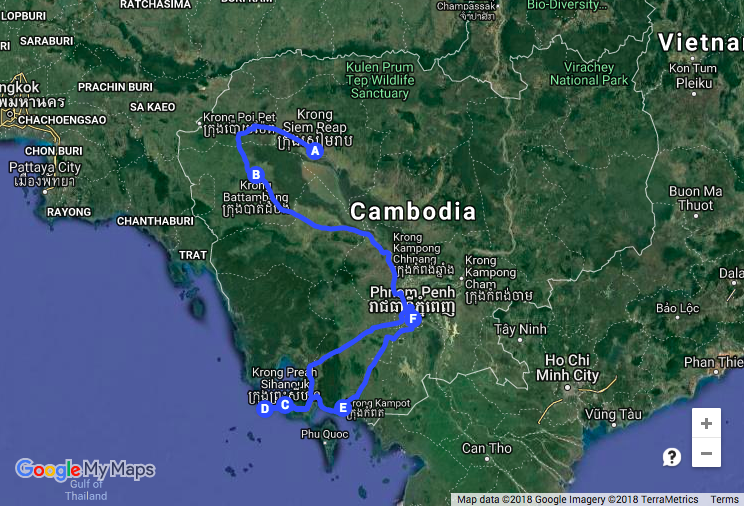
Before you visit: Learn Cambodian History
When you’re in Cambodia, it’s important to learn about the atrocities that occurred here between 1975-1979 (recent history!). One third of the population was killed by Pol Pot and the Khmer Rouge communist regime.
Many of the sites you’ll visit while backpacking Cambodia have an incredibly gruesome and depressing history, but it’s important to learn from it and ensure that these atrocities are never committed again.
Don’t worry, it’s a happier, safer place now! The locals are friendly and welcoming, and there’s a prominent expat community. In addition, tourist travel from location to location is easy and plentiful.
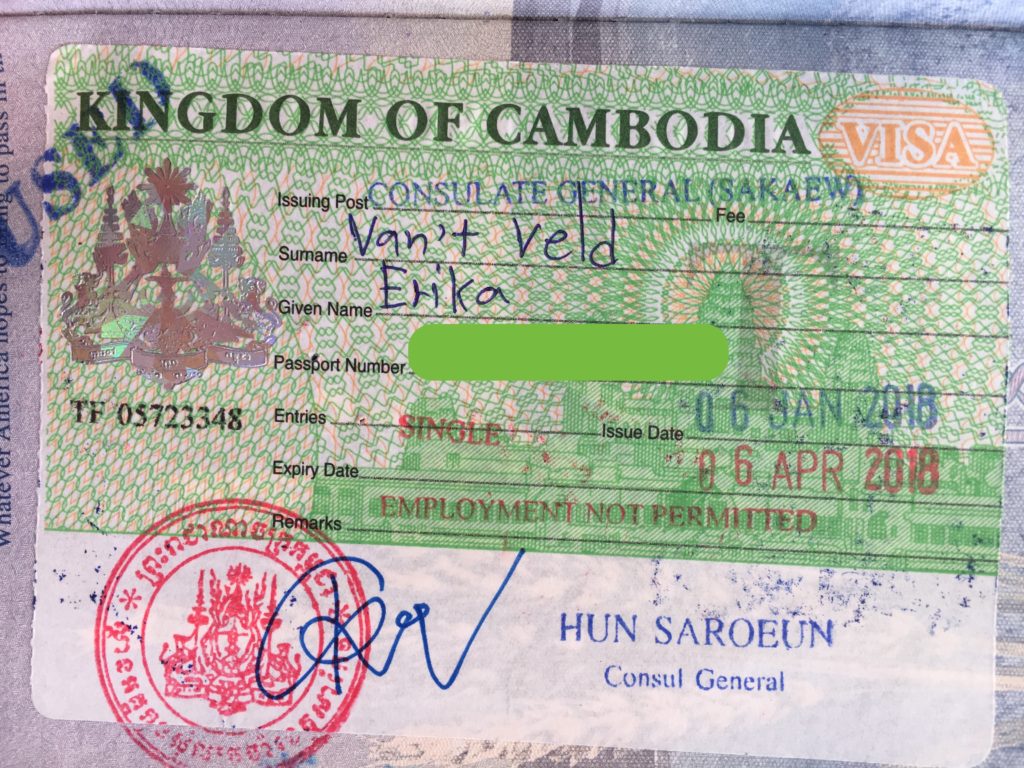
Getting Here
The two popular entry points to Cambodia are Phnom Penh (via plane) and Siem Reap (via bus or plane). I came to Cambodia from Bangkok, and started my journey backpacking around Cambodia from Siem Reap.
Visa to Cambodia
The Cambodian visa on arrival allows you to stay in Cambodia for 30 days. Apparently, it’s easy to renew the visa if you want to stay backpacking Cambodia for longer. Many people do this in order to volunteer for long periods of time in hostels around the country. Check visa requirements for your country at iVisa.
Currency
Cambodia’s local currency is the Cambodian Riel, but most businesses use the U.S. Dollar. When you pull money out of the ATM, you’ll get crisp U.S. $100 bills! This can be a slight inconvenience in a country where everything is $1-$2 USD.
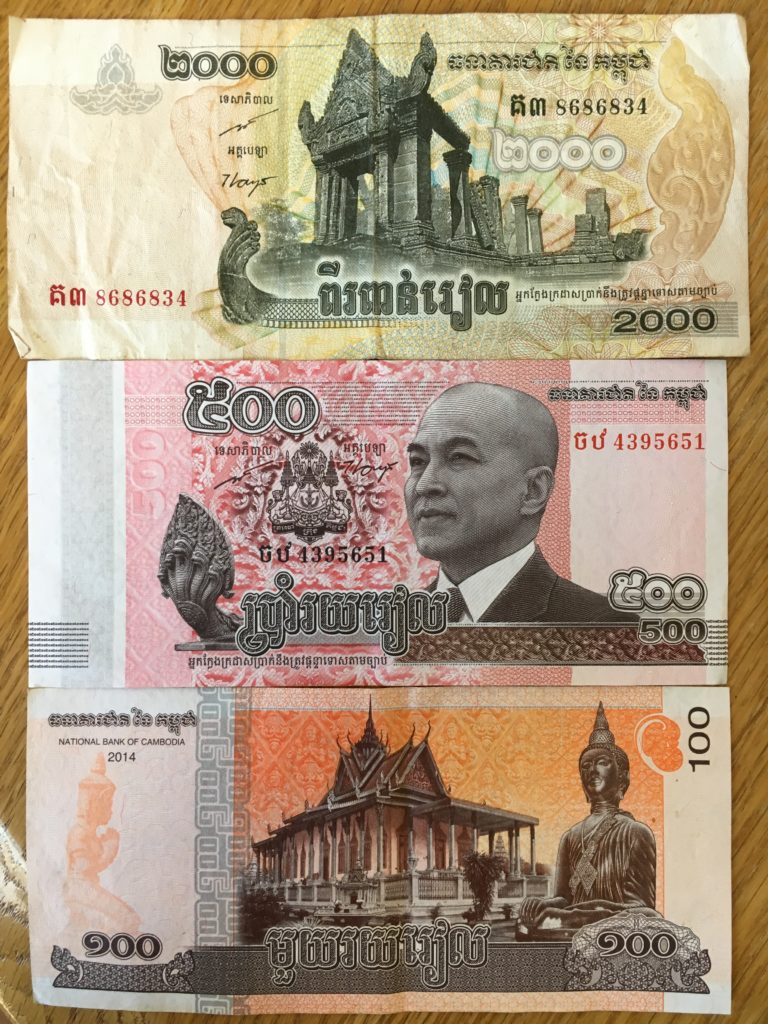
Read up on what to expect when you bus from Bangkok to Siem Reap: Thailand to Cambodia Overland Border Crossing
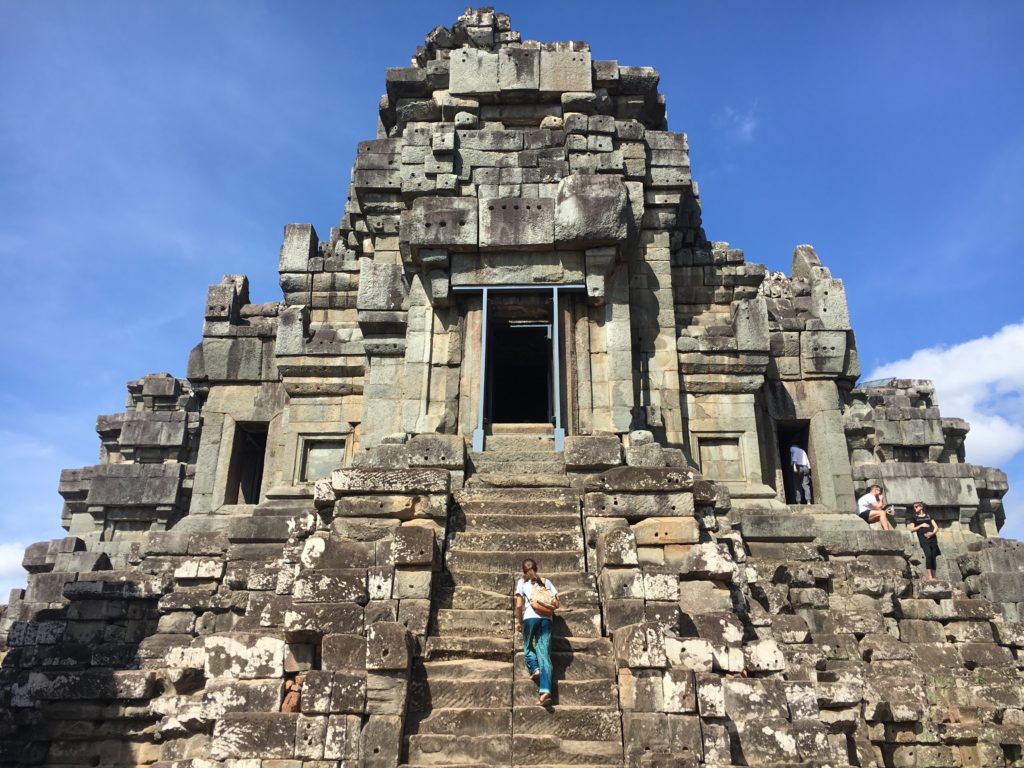
Days 1-3: Siem Reap
To Do:
Siem Reap is a backpacker’s paradise and a perfect place to start your two weeks in Cambodia.
The main attraction in this area is Angkor Wat. You can get a one day, three day, or seven day pass for $37, $62, and $72 respectively. At the ticket office you can use a bank card to purchase your entrance pass. Since the ticket office is not close to the archeological site entrance, take into account an extra half-hour to get to and from here. Supposedly the lines to buy the one-day tickets are long right before sunrise, so plan accordingly!
Although I purchased the three day pass, one day is plenty if you don’t have a specific interest in the architecture or history of the place. If you do purchase the multiple-day passes, you don’t need to enter the complex on consecutive days.
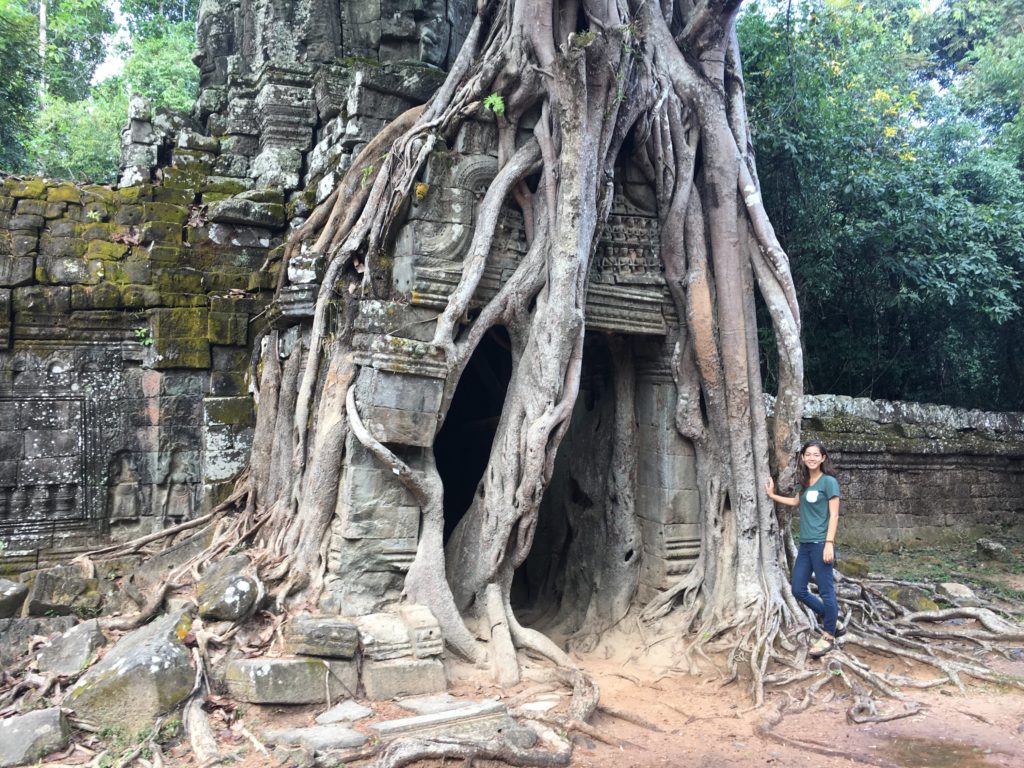
Angkor Wat Tour Options
Most tour agencies, including the one from my hostel, offer the “Small Tour” and the “Grand Tour”. The tour names are in relation to the distance that the tuk tuk driver will cover during the day, not the grandeur of the temples that you’ll be seeing.
The Small Tour covers the most impressive temples, including Angkor Wat and Bayon temples, and it takes you to several smaller ones as well. For a one-day pass, I recommend taking the Small Tour for the sunrise or the sunset! You can book ahead or book any tuk tuk driver when you arrive in Siem Reap.
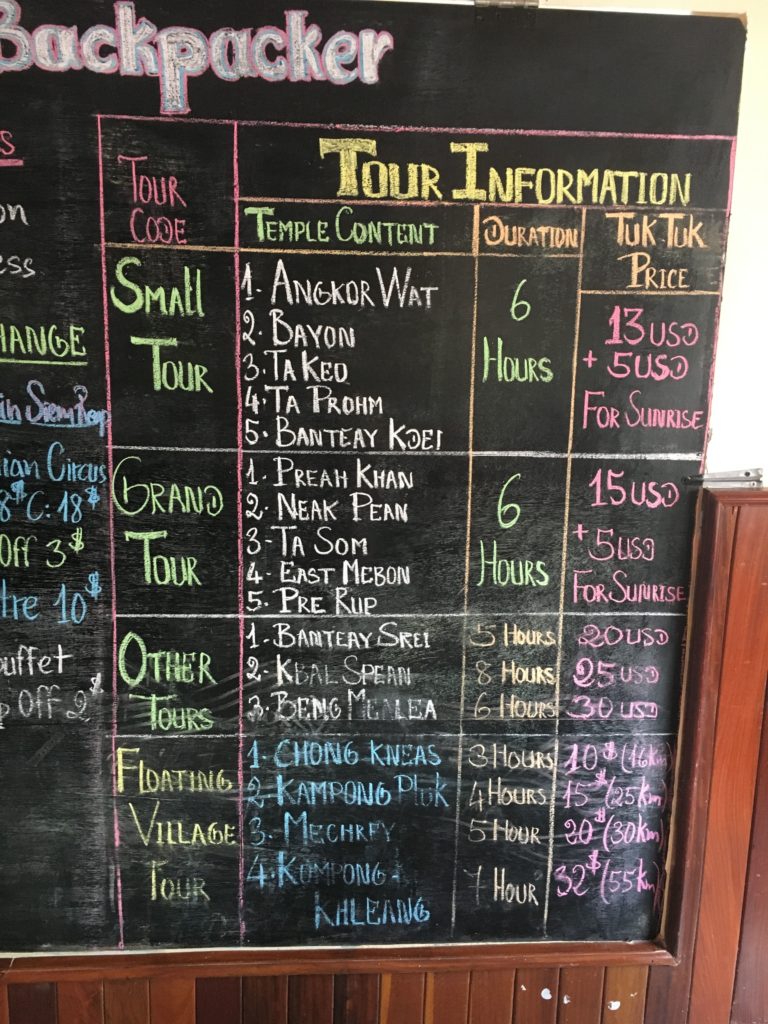
On the next day, if you’re not going to the temples again for the “Grand Tour”, check out the Cambodian War Museum which is a short tuk tuk drive away. Usually the tuk tuk driver will take you there and wait outside for you to see everything, then take you back to town.
There is also a popular tour to the floating village, built on stilts, that’s to the south of Siem Reap.
There’s a large covered market square, Psar Chas, next to the river, where you can get cheap souvenirs, clothes, and some local foods.
There’s also a larger local market within walking distance, Phsar Leu Thom Thmey. Here you can check out a large meat and fish market, as well as buy bread, gold, and clothing. This market is basically an all-in-one stop for the local Cambodians.
To Eat/Drink:
The best place to find food, including street food, and drinks is on lively Pub Street, a favorite place for backpackers in Cambodia to get a little rowdy. Tip: Don’t get too rowdy. Pub Street is the Khao San Road of Siem Reap.
At the end of the night, check out some of the street food stalls nearby with little plastic chairs and tables set up out front.
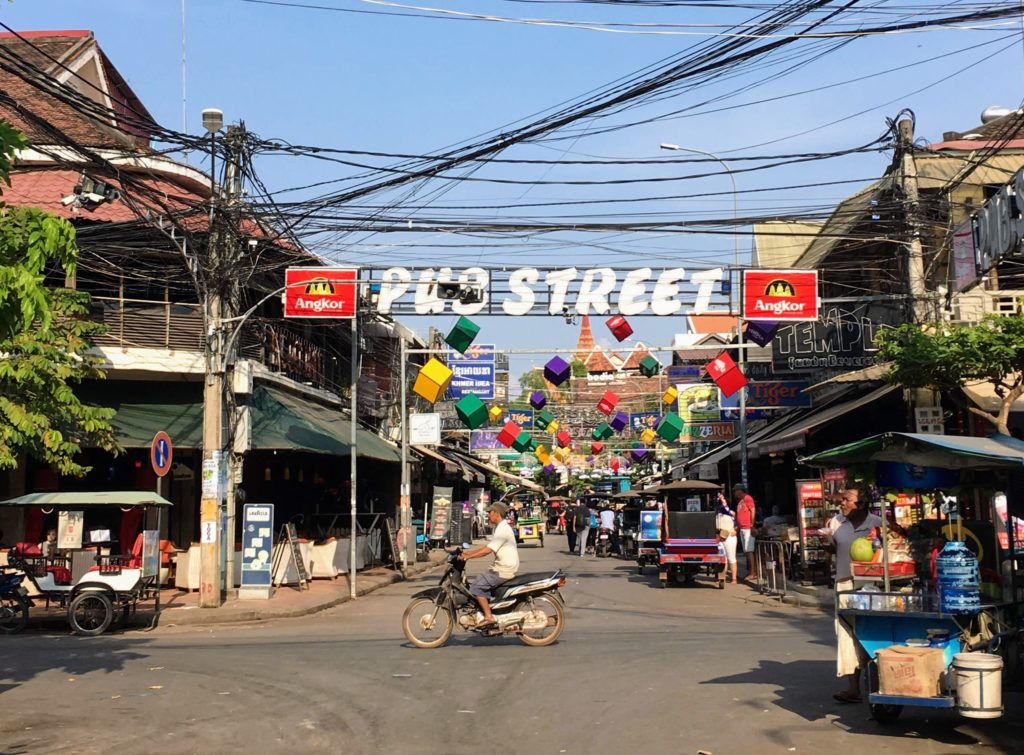
To Stay:
Cambodia is the land of the $2 dorm rooms, and Siem Reap is the cream of the crop. For a $2 dorm it’s common to have really nice amenities, AC, and even a pool!
I stayed at the Siem Reap Chilled Backpacker hostel, which had a social atmosphere at their pool and bar/restaurant area. They also have a travel agency, and you can easily find others to split the cost of the Angkor Wat tours.
For a next-level party hostel with a pool full of drunk people, check out the Funky Village.
Search through all the other amazing hostels in Siem Reap!
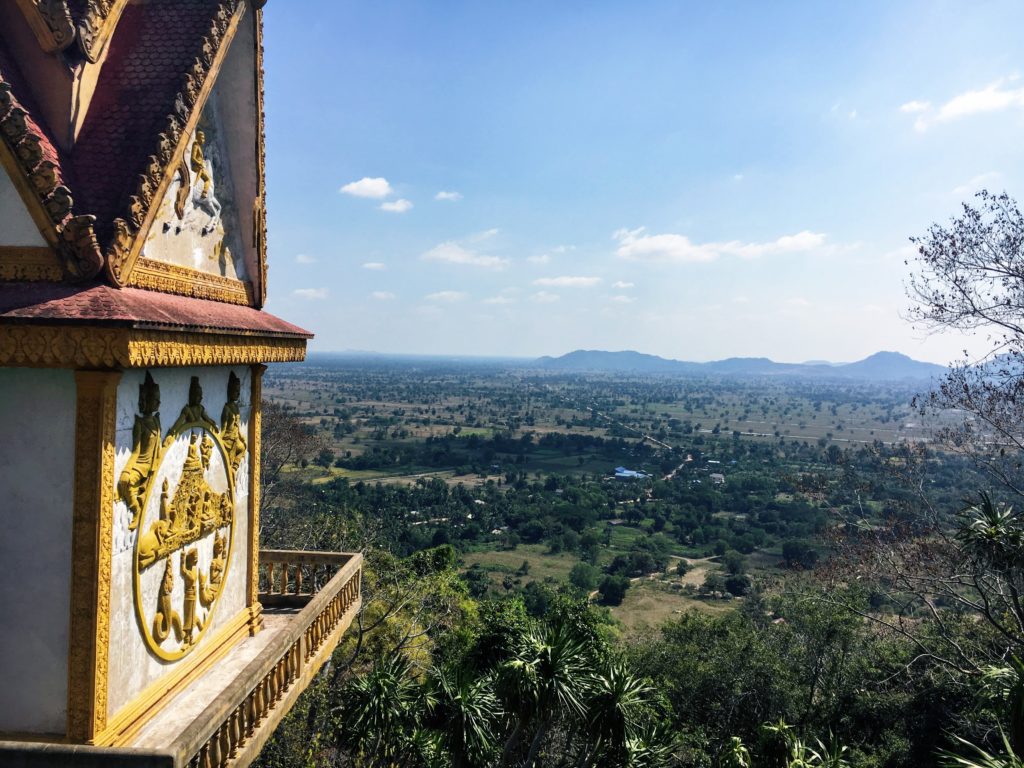
Days 4-5: Battambang
The next stop is less known but shouldn’t be missed on your Cambodia itinerary.
Battambang is day-trip distance from Siem Reap, but worth spending at least one night in. Several busses leave from Siem Reap to Battambang per day, and it takes 3-4 hours for $10 per seat.
Battambang is a small town in the heart of the Cambodian countryside. When you’re here you’ll feel like a local! There are groups of elderly women doing calisthenics at the park and kids playing soccer in the street. Outside of town everyone seems to be living on an agricultural plot of land complete with a muddy water buffalo in their yard.
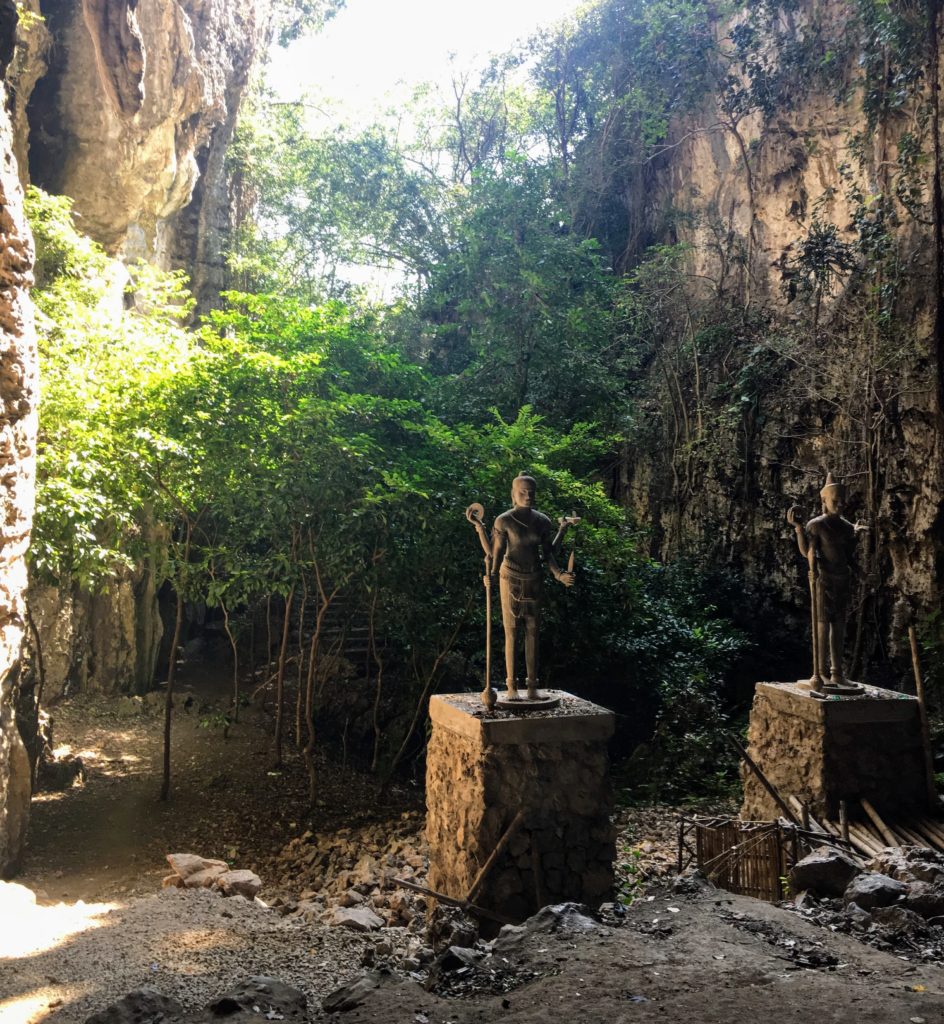
To Do:
Rent a scooter or hire a tuk tuk to go around to the different sights in the countryside around this town.
The most important sight to check out, although it’s not for the faint of heart, is the Killing Caves. It was the location of unspeakable crimes against humanity, and it showcases the awfulness of the Pol Pot era. “Enemies of the regime” were brutally tortured here, then thrown down this inescapable cave.
Currently the cave is opened up with a staircase going into it. There are also a set of temples and a monastery built on the same hill (watch out for monkeys!). Hang around until sunset to see the bats come out of the Bat Cave, near the entrance of the complex.
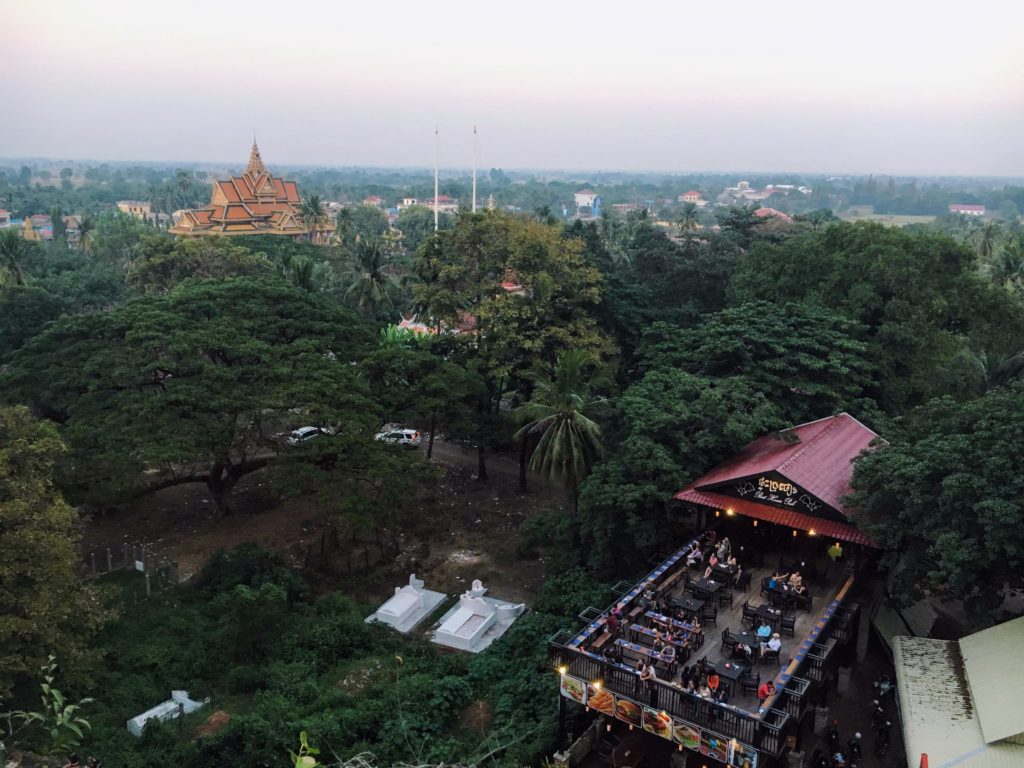
Drive next, to the Well of Shadows north of Battambang. It’s a monument memorial for the victims of the Khmer Rouge, with graphic carvings depicting what happened to the locals. There are bones of the victims on display inside the monument.
Next to the Well of Shadows is a beautiful monastery where many kid monks were running around outside.
Some other attractions in the area include the Bamboo Train, a simple bamboo platform car that drives slowly over a short stretch of train tracks. I enjoyed wandering around the mysterious Phnom Troung Moan complex, near the Killing Caves, where the main temple and surrounding living quarters looked abandoned.
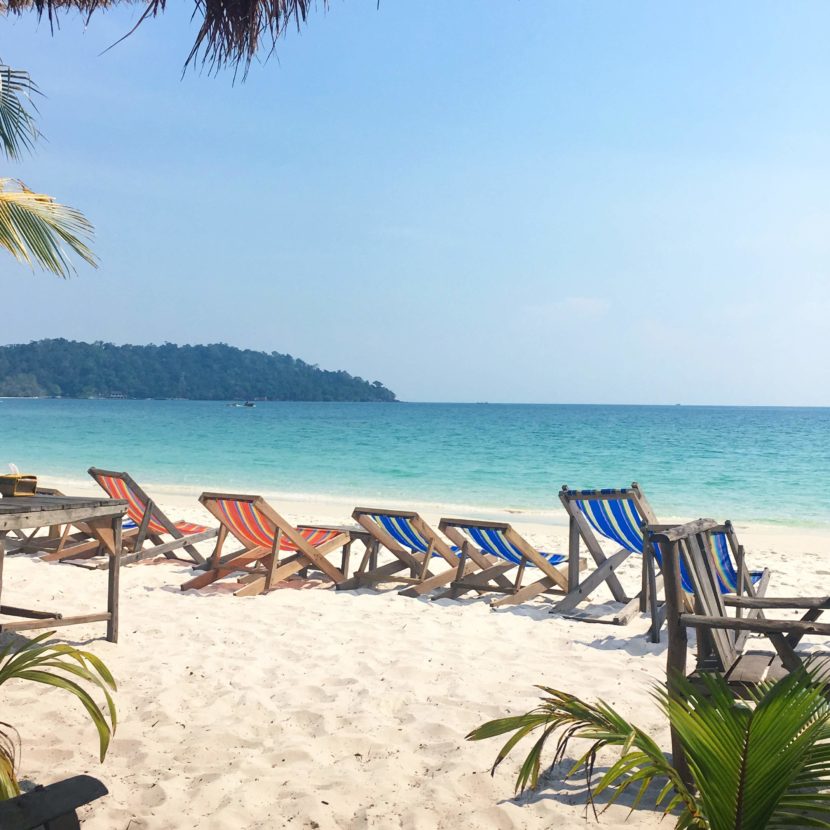
Days 6-10: Koh Rong Sanloem and Koh Rong
Now for the beautiful beaches!! Koh Rong Sanloem and Koh Rong were my favorite part of my Cambodia itinerary. It’s a great place to kick back and let all of your worries float away.
Many backpackers in Cambodia take the overnight sleeper bus from Battambong, with a layover in Phnom Penh, to get to Sihanoukville. From Sihanoukville it’s a short ferry ride to either of Koh Rong or Koh Rong Sanloem. The transit lasts from 10pm to about 1-2pm.
Tip: When you buy a ferry ticket to the islands, it’s cheaper to get a round-trip ticket with an open return option. I bought mine from a stand right next to the ferry pier.
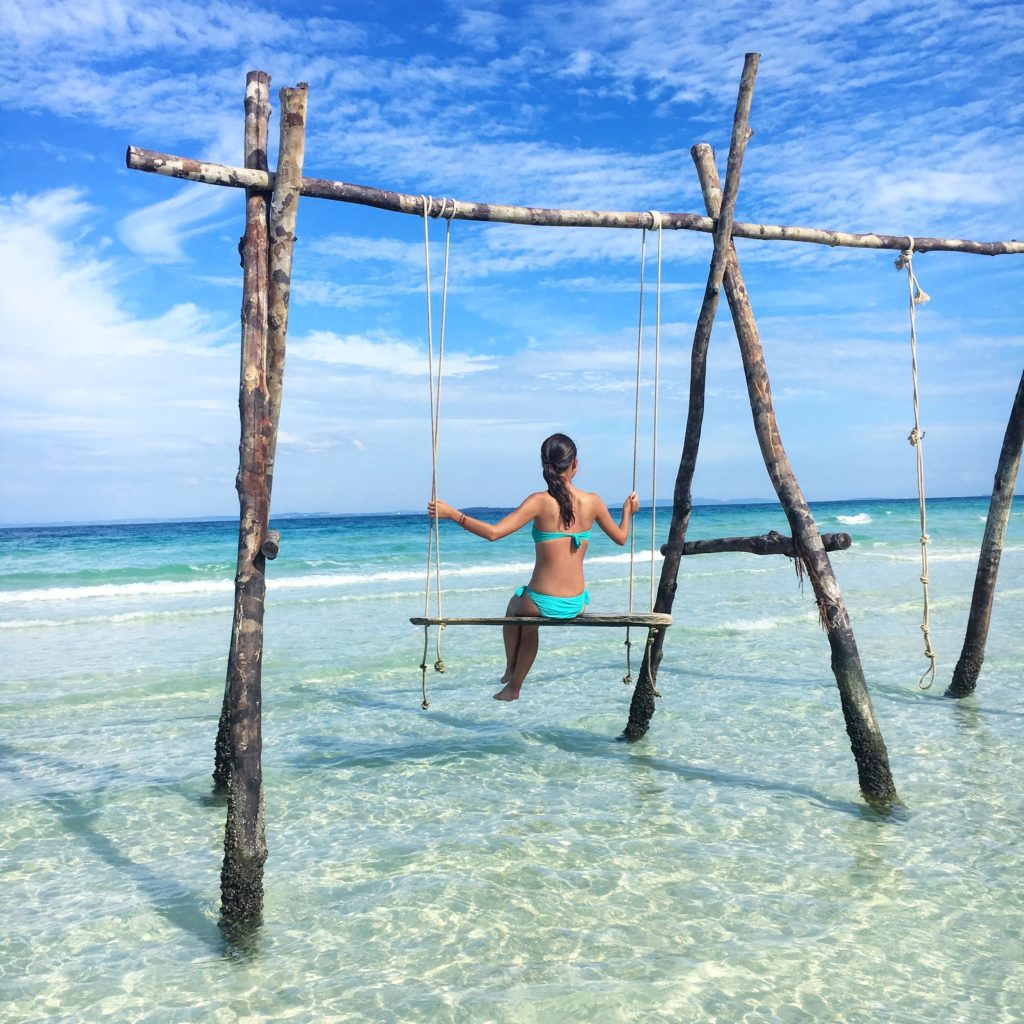
Transportation between the islands is easy, and boats leave all day, everyday for less than $10. Boats to different isolated beaches on the islands are cheap and running frequently as well.
How many days to spend on each island depends on the atmosphere you want:
Koh Rong Sanloem is a quieter island, with small guesthouses and few restaurants. When I stayed on the North side of the island I spent all my days without connecting to wifi or having a drop of alcohol.
Koh Rong is larger and more of a party island, with more guesthouse and restaurant options. Koh Rong is also famous for their alcohol-fueled, all night beach raves and island parties.
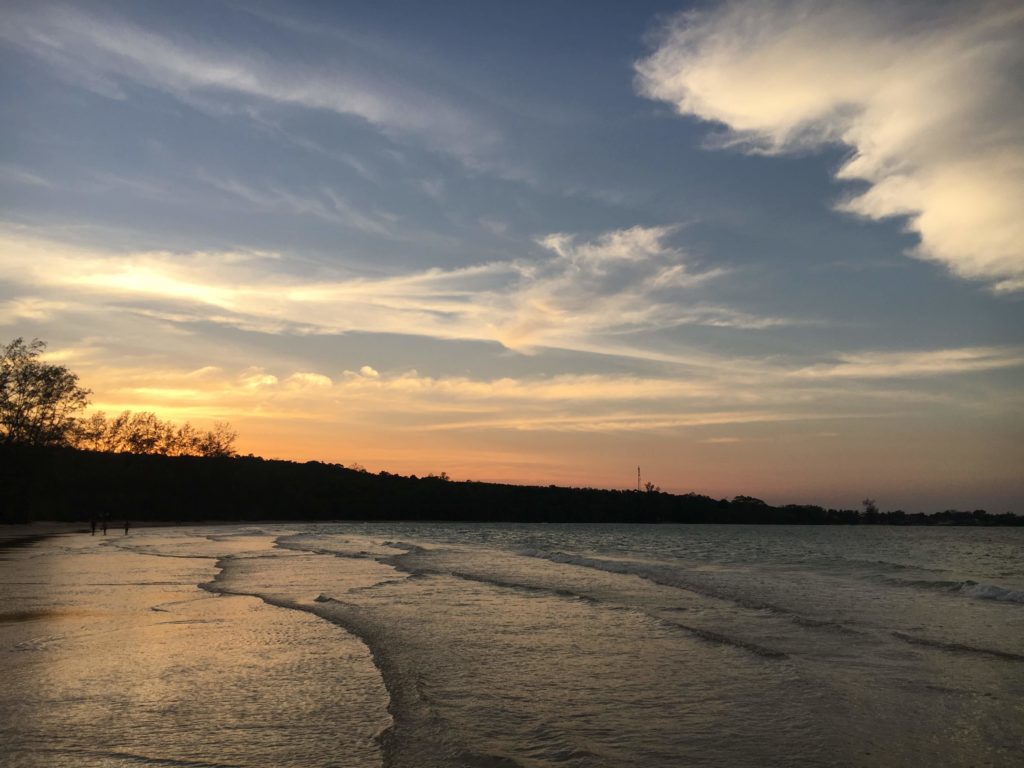
Both islands have beautiful beaches and crystal-clear water. I personally spent three nights on Koh Rong Sanloem and five on Koh Rong. If I could do it again I would stay for more days on Koh Rong Sanloem and spend some time on the West, more secluded side of the island.
Tip: Make sure when you book accommodation that you know exactly where on Koh Rong or Koh Rong Sanloem it’s located. Some areas are only accessible by boat so you need to board the right one to get there.
To Stay:
On Koh Rong Sanloem finding yourself a little slice of paradise by staying at top-rated KAMAKU Bungalows.
On Koh Rong backpackers can’t go wrong with staying at the Mad Monkey Hostel. I would have loved to stay at nearby Nest Beach Club, but they were sold out for the days I was there.
See other places to stay in Koh Rong Island or Koh Rong Sanloem Island!
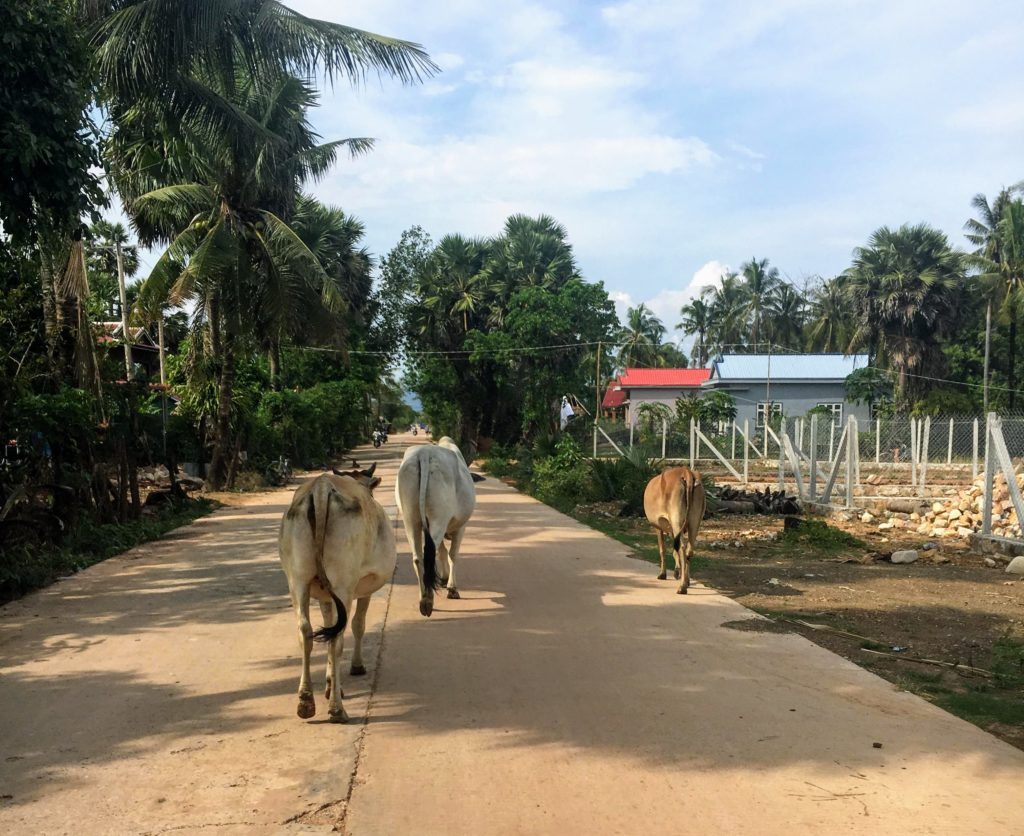
Day 11-12: Kampot and Kep
Now it’s back to the mainland to rural Cambodian fisherman villages!
From the islands it takes about 5 hours in transit to reach Kampot. You can take an early ferry back to Sihanoukville, then buy a bus ticket to Kampot from any ticket stand or tourist office.
Kampot is a town with many expats who own nice restaurants and cafes on the main street. It’s known for its surrounding salt flats and nearby Preah Monivong Bokor National Park.
Kep is famous for its morning crab and seafood market, as well as its surrounding pepper plantations. It’s about 30-40 minutes on a scooter away from Kampot.
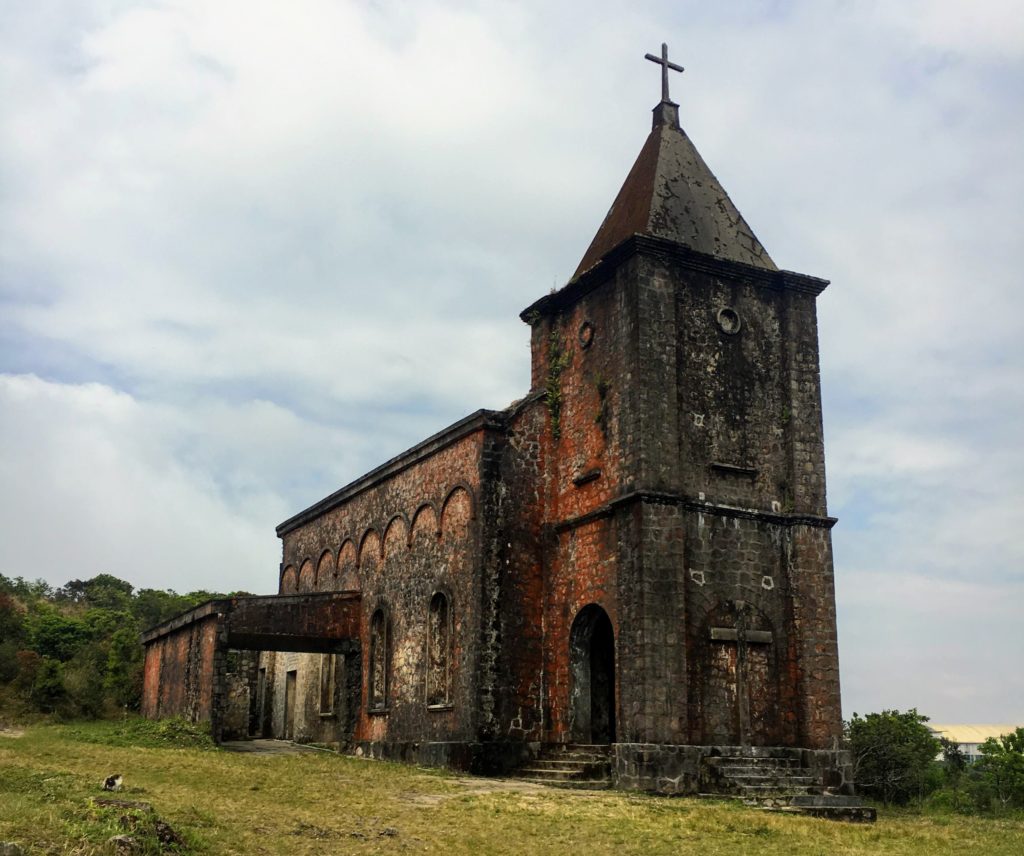
To Do:
I recommend renting a scooter here for 24 hours. In the morning you can take it up to the national park (free entry) to check out the abandoned buildings. They have an air of gloominess about them now, but you can imagine what life might have been like for their former French inhabitants.
There are some great viewpoints of Kampot town and the valley below, as well as the vast white salt fields. On the way back to Kampot you can detour through the salt fields which are just to the east of town. You’ll drive through little villages and see big huts where the bags of salt are stored after they are collected.
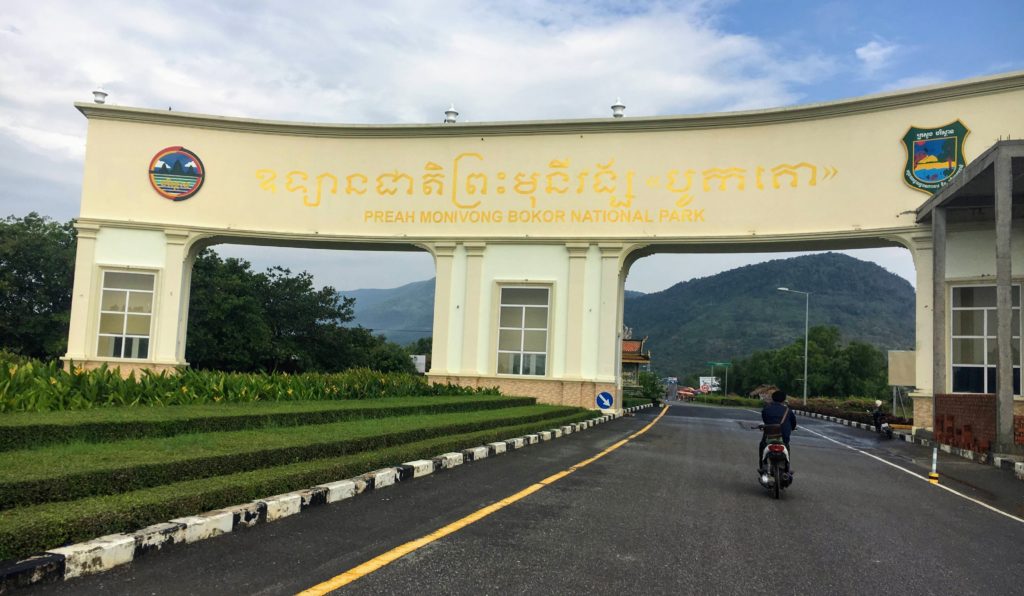
Early the next morning, make the drive along the coast to Kep town in time to check out the crab market. There are dozens of locals fishermen and women pulling large crab cages out of the water. The best part is everything gets dumped onto the concrete floor of the market!
For seafood lovers it’s a great place to try many different fresh fish species that are grilled right in front of you!
There are some pepper plantations nearby, which I found using the maps.me app. They have large plantations built in the jungles, and many will give tours when you drive up to them.
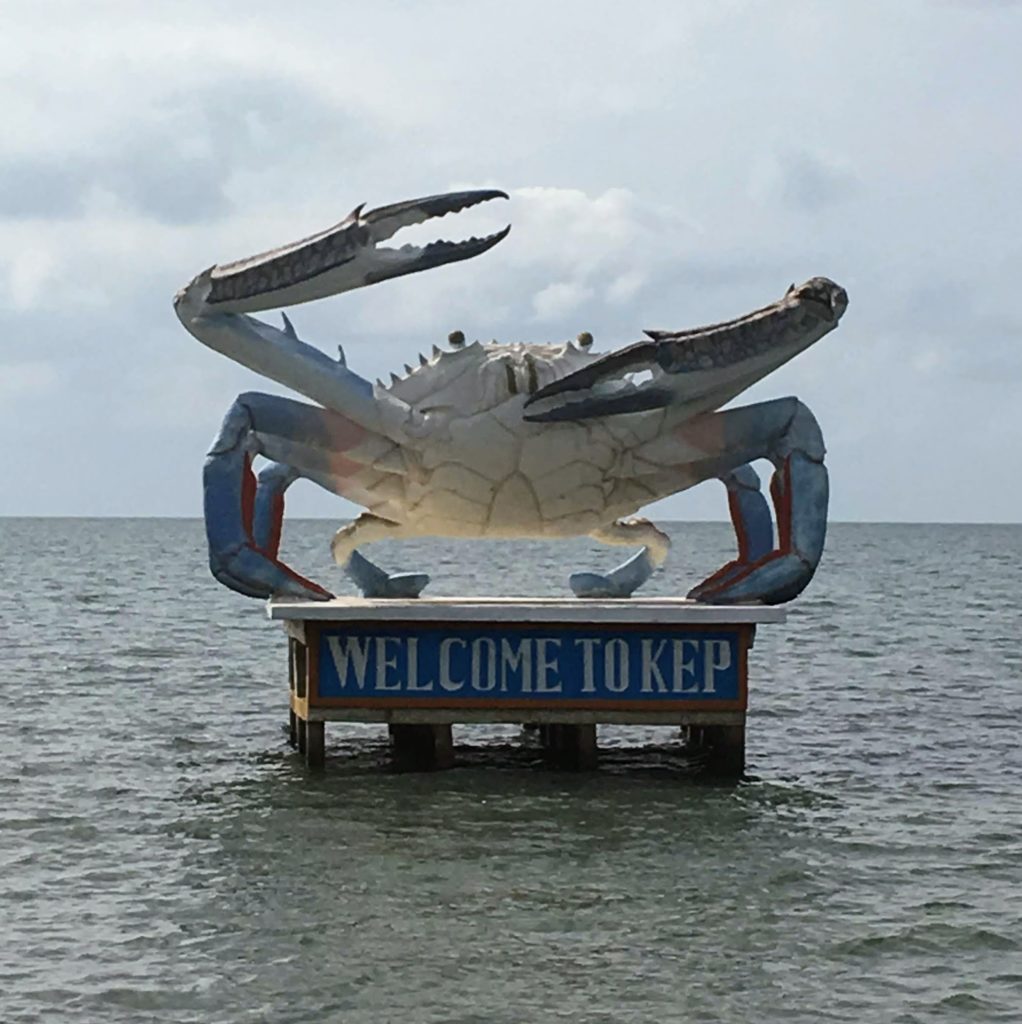
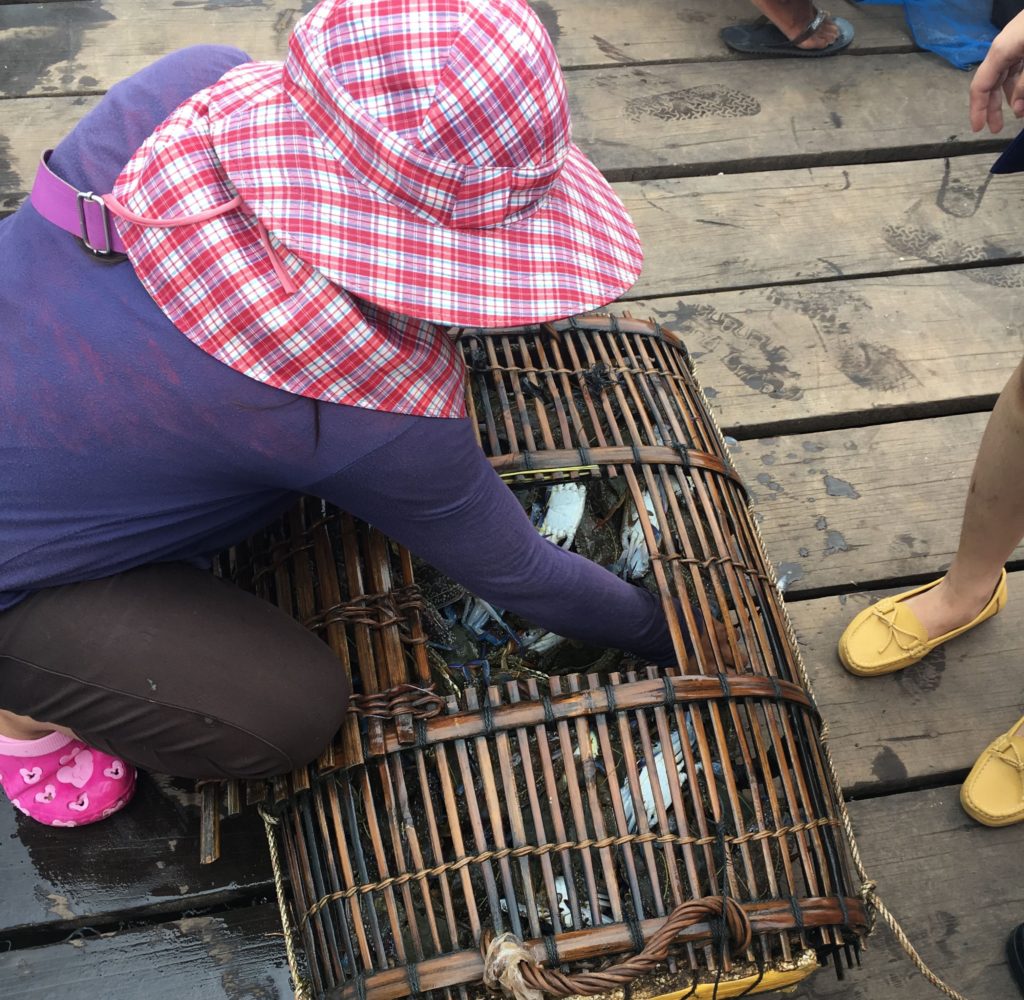
In the afternoon you can depart to Phnom Penh. I left on the 4:30pm mini bus and arrived in Phnom Penh around 9pm.
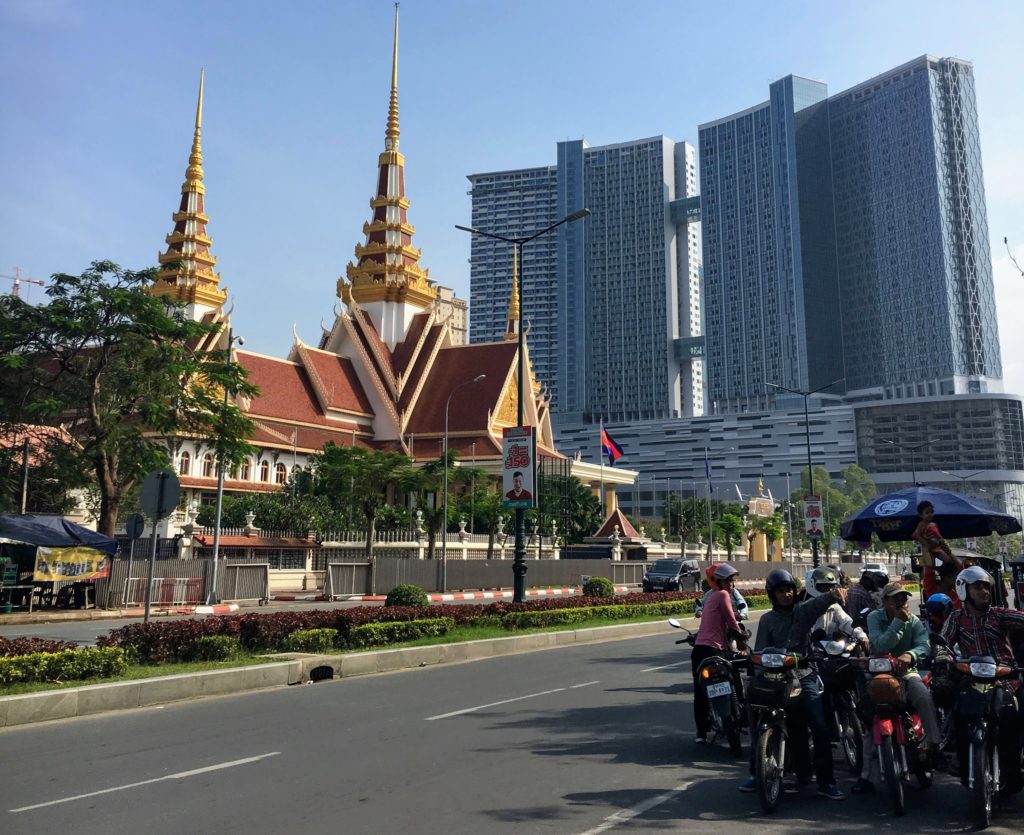
Days 13-14: Phnom Penh
Phnom Penh is the final destination on my two-week Cambodian itinerary.
Many backpackers disregard Phnom Penh as “another busy Asian capital city”, but I liked the mix of old and new that you can find here. It was surprisingly clean with many open green spaces and parks, and modern compared to the rest of the country.
Give yourself at least 24 hours in the city to see two historical sites that cannot be missed: The Choeung Ek Genocidal Center, also known as the Killing Fields, and the S21 torture prison.
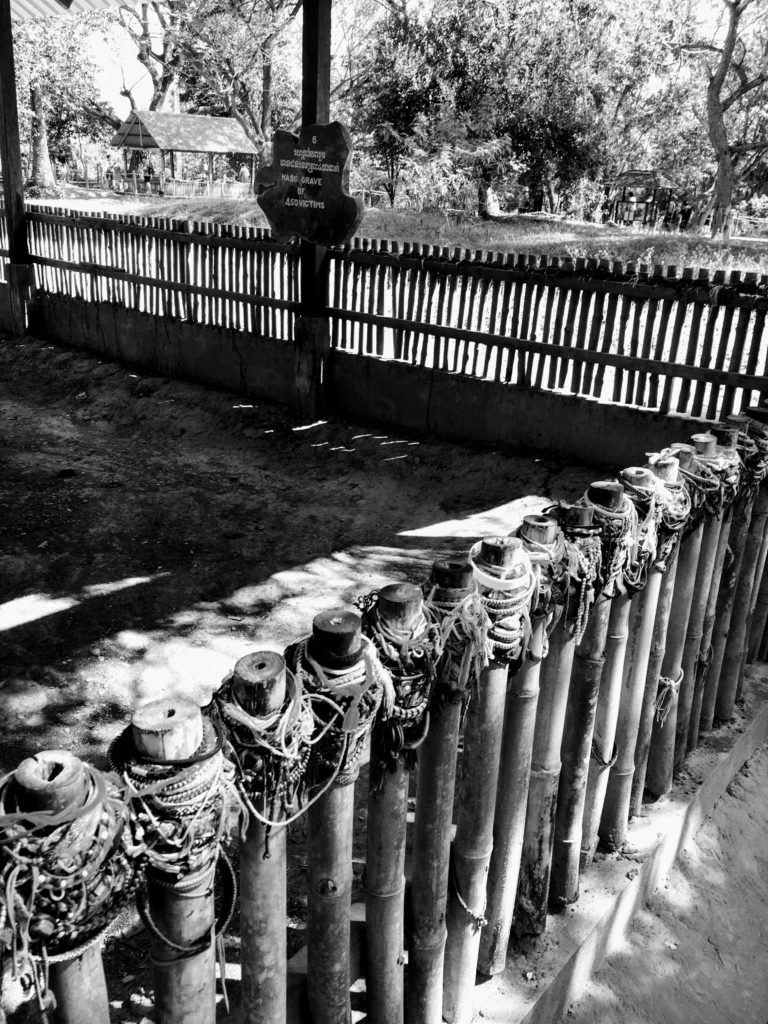
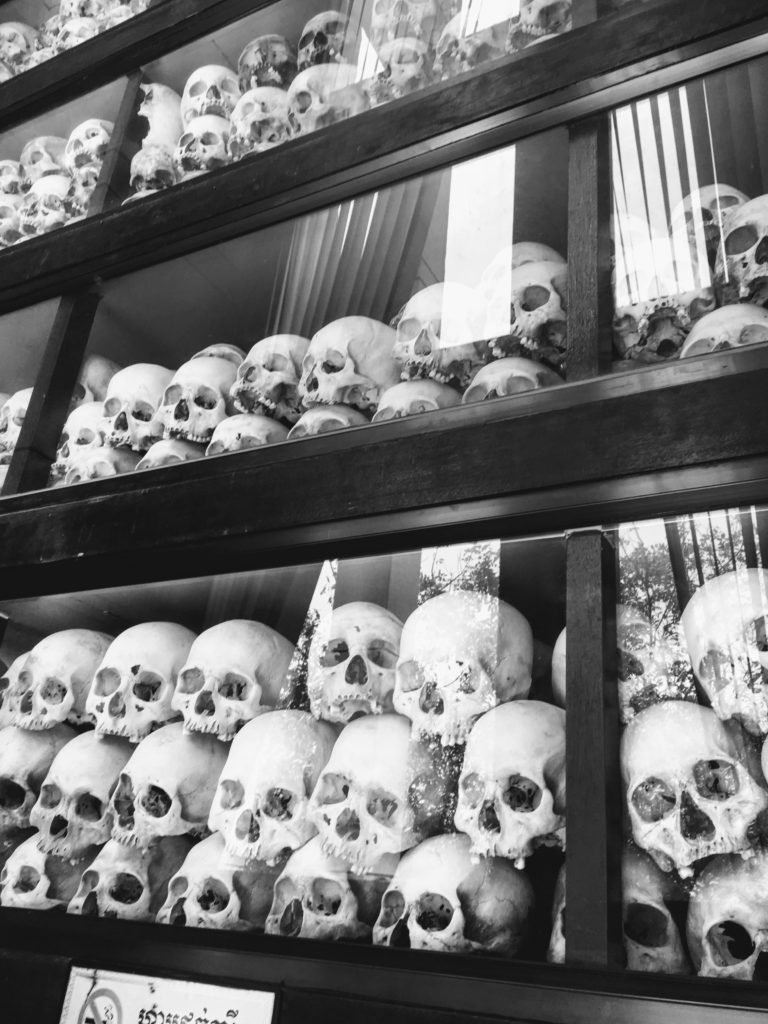
To Do:
Hire a tuk tuk for the day in Phnom Penh to go to the Killing Fields, about 40 minutes away from the center of the city. After the Killing Fields you see the S21 prison in the center of Phnom Penh. I booked the tuk tuk through the hostel, and shared the cost with three others. There are also more comfortable bus tours that run the same route.
Warning!
This will be a very emotionally heavy day, learning about the atrocities committed by the Khmer Rouge.
The first stop is the Killing Fields. Pay for an audio guide to educate you while you walk through the complex. You can sometimes see bones or pieces of cloth that have unearthed over time, sticking out of the graves.
The second stop is the S21 torture prison. This is where people accused of being an enemy of the regime were detained, tortured, and killed. Again, pay for an audio guide that will take you room by room through the large complex. You may realize just how recently these atrocities were committed when you see the blood that still stains the floors of the prison cells.
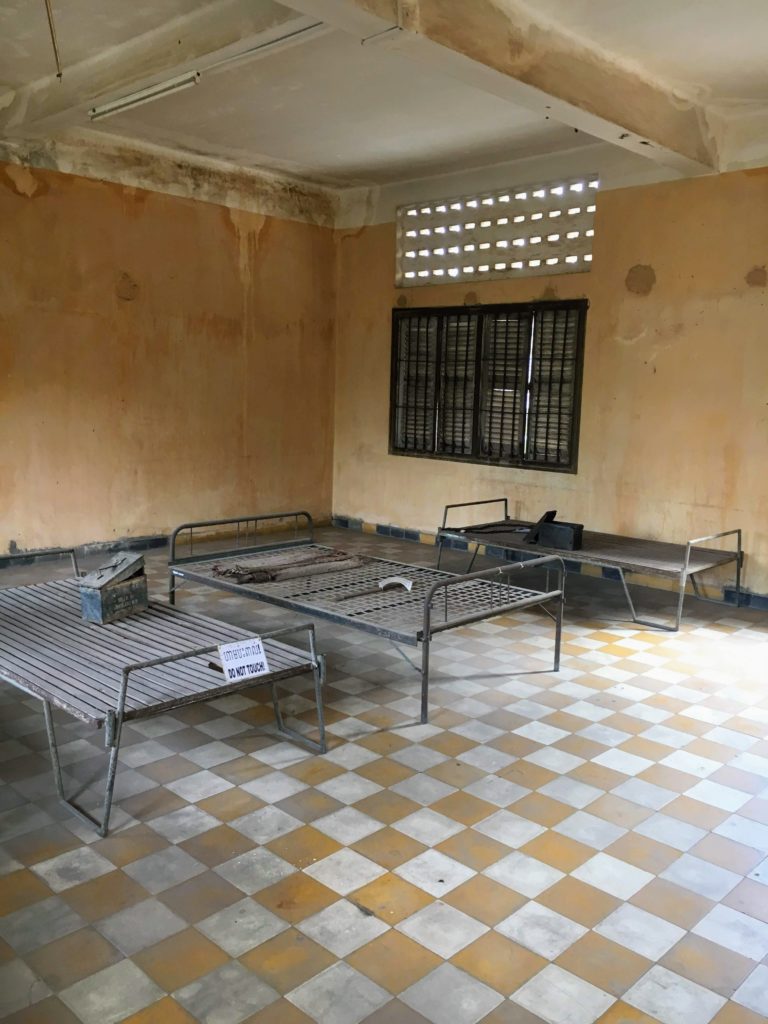
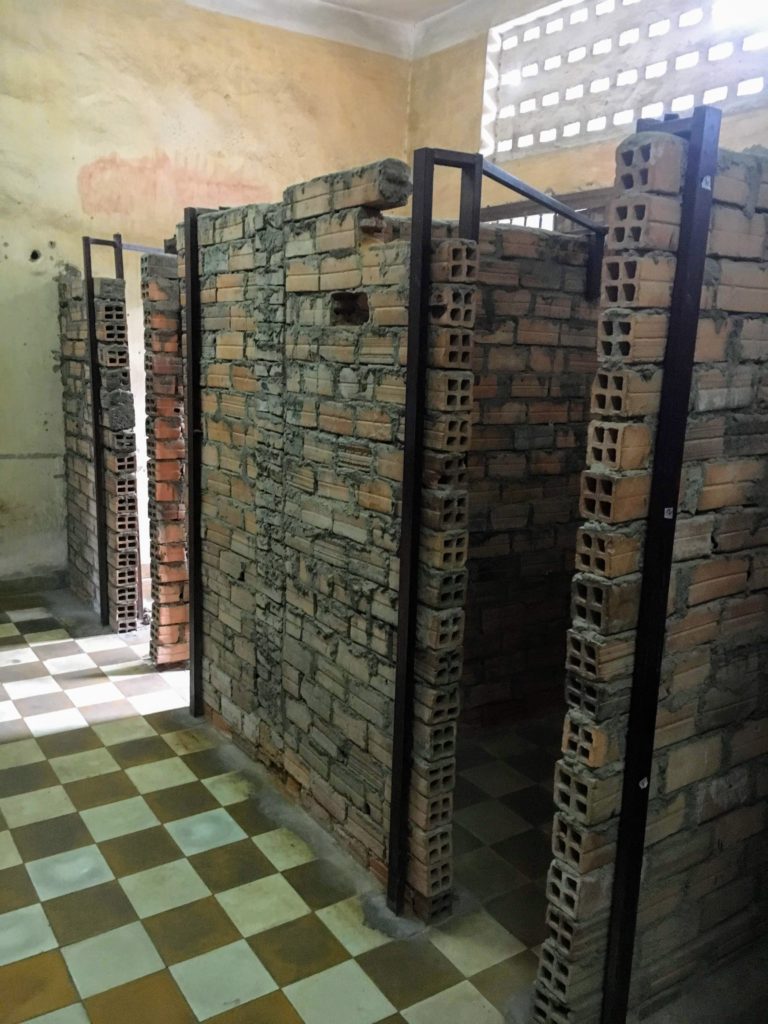
Less Brutal Phnom Penh Sights
Similar to Bangkok, there’s a decorative Royal Palace that you can visit for a $10 entrance fee.
For free activities, do some window shopping at the Central Market. It’s a circular half-indoor, half-outdoor complex where locals go to have meals and buy fresh produce.
I loved the Phnom Penh night market, which is north alongside the Mekong river. It’s a great place to listen to local music performances and have a dinner for cheap. I never spent more than $5 for two dishes plus dessert! They have mats laid out in the center for people to sit on and enjoy their meal.
You can also take a dinner sunset cruise down the Mekong river for cheap, to take a break from the city.
If you have extra time, take a walk to the Aeon Mall, a Japanese mall chain. You’ll pass by many parks filled with locals enjoying the outdoors. The mall has a massive foot court on the first floor and a large supermarket. There’s also a movie theater and game center on the top floor.
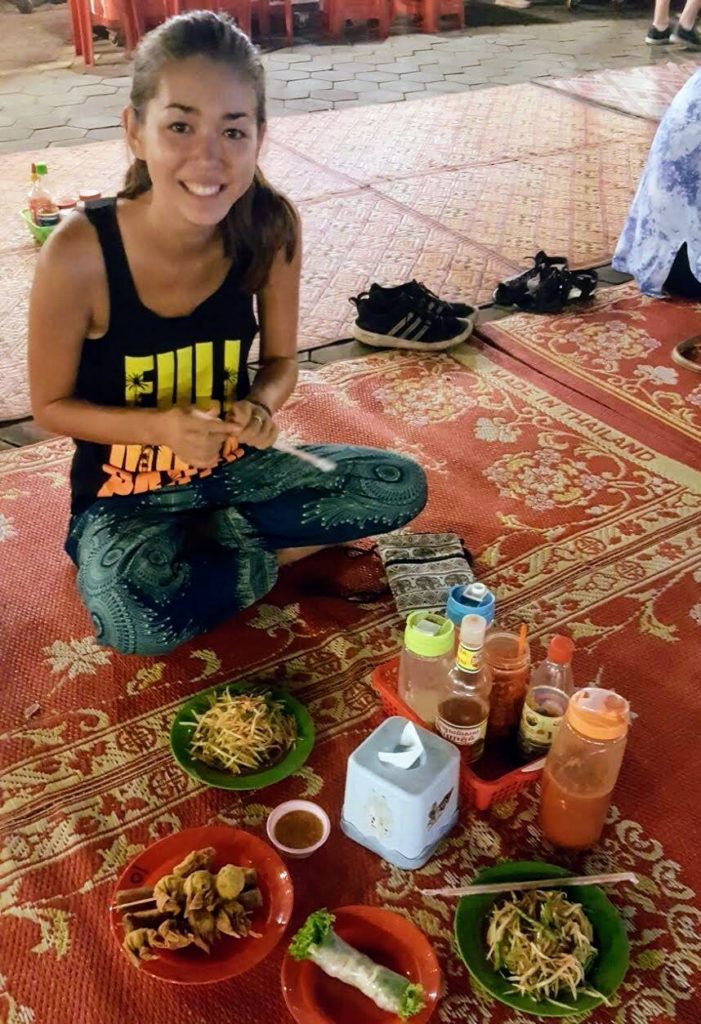
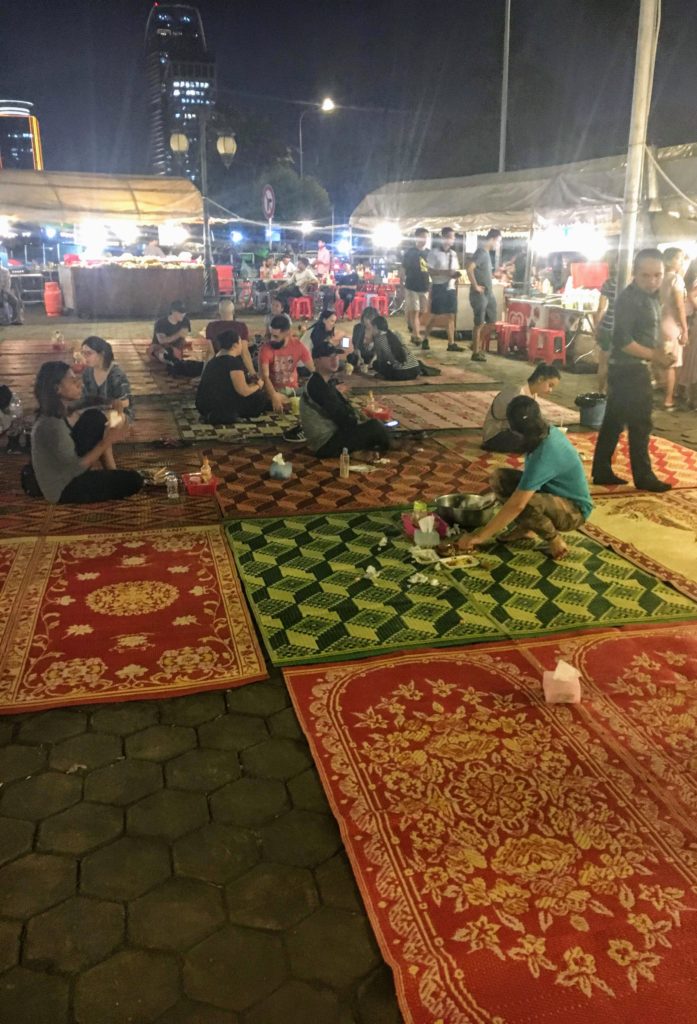
This concludes two weeks in Cambodia!
Phnom Penh is a great last stop on your two-week Cambodia itinerary, because its a big transit hub for the country. You can easily reach both Vietnam and Laos, or even go back to Thailand. The Phnom Penh airport is large and has cheap flights to many other Southeast Asian destinations.
If you plan to stay in Cambodia for all 30 days that the visa allows, I recommend staying longer on the islands, in Kampot, and in Phnom Penh. Other places to visit include Otres Beach, south of Sihanoukville, which is known for being a hippie haven with beautiful beaches. There are many national parks and nature reserves where you can stay in bungalows and do some hiking as well.
Happy Travels!
Pin this post for later!
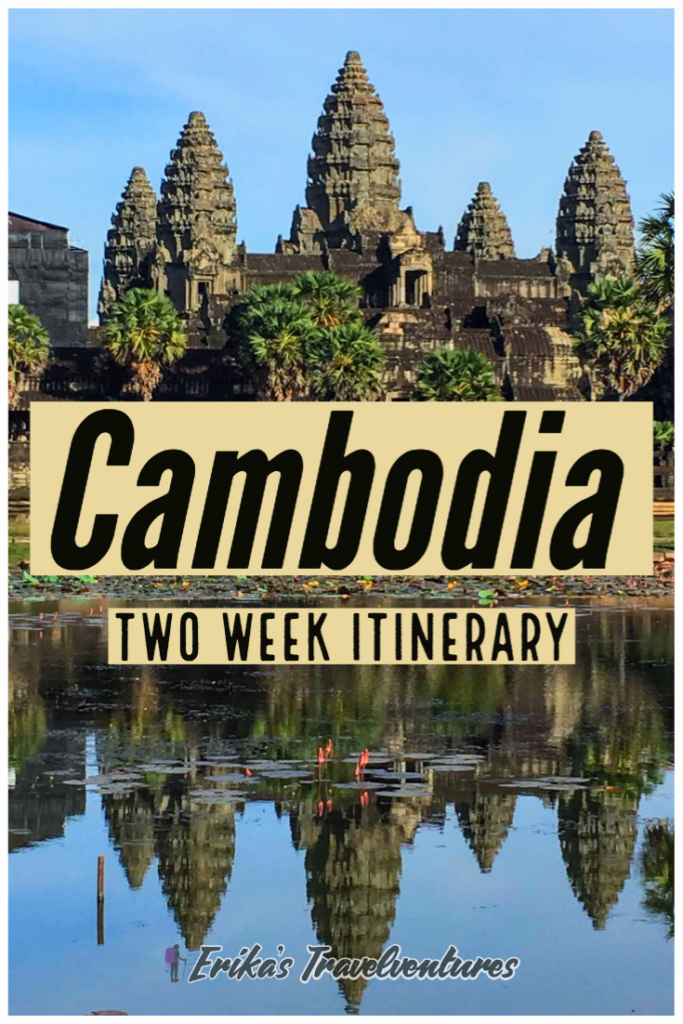
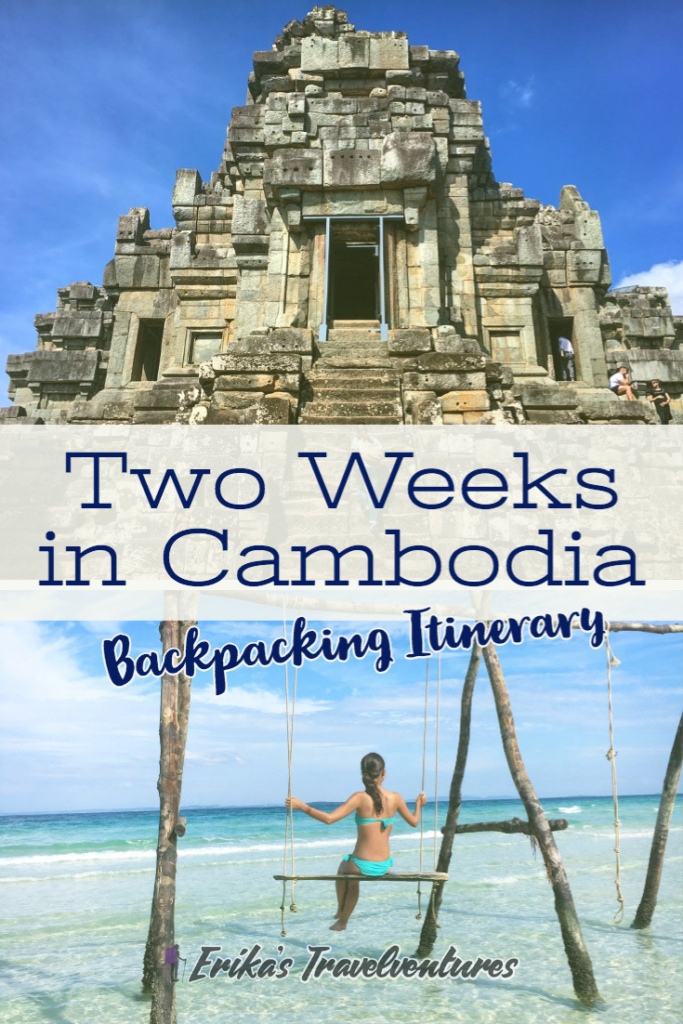
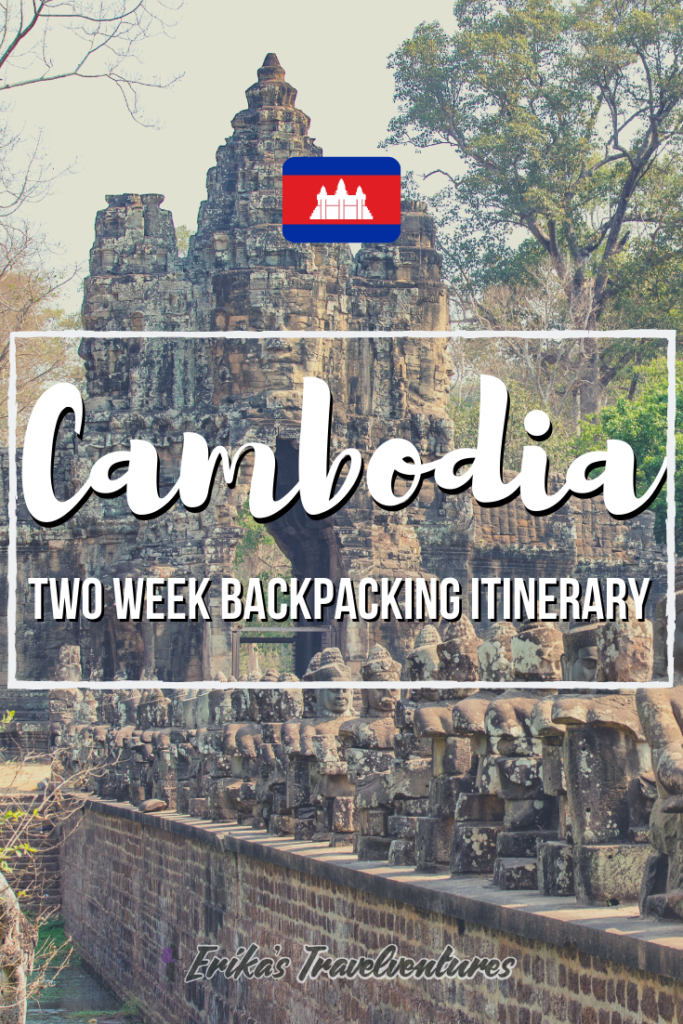

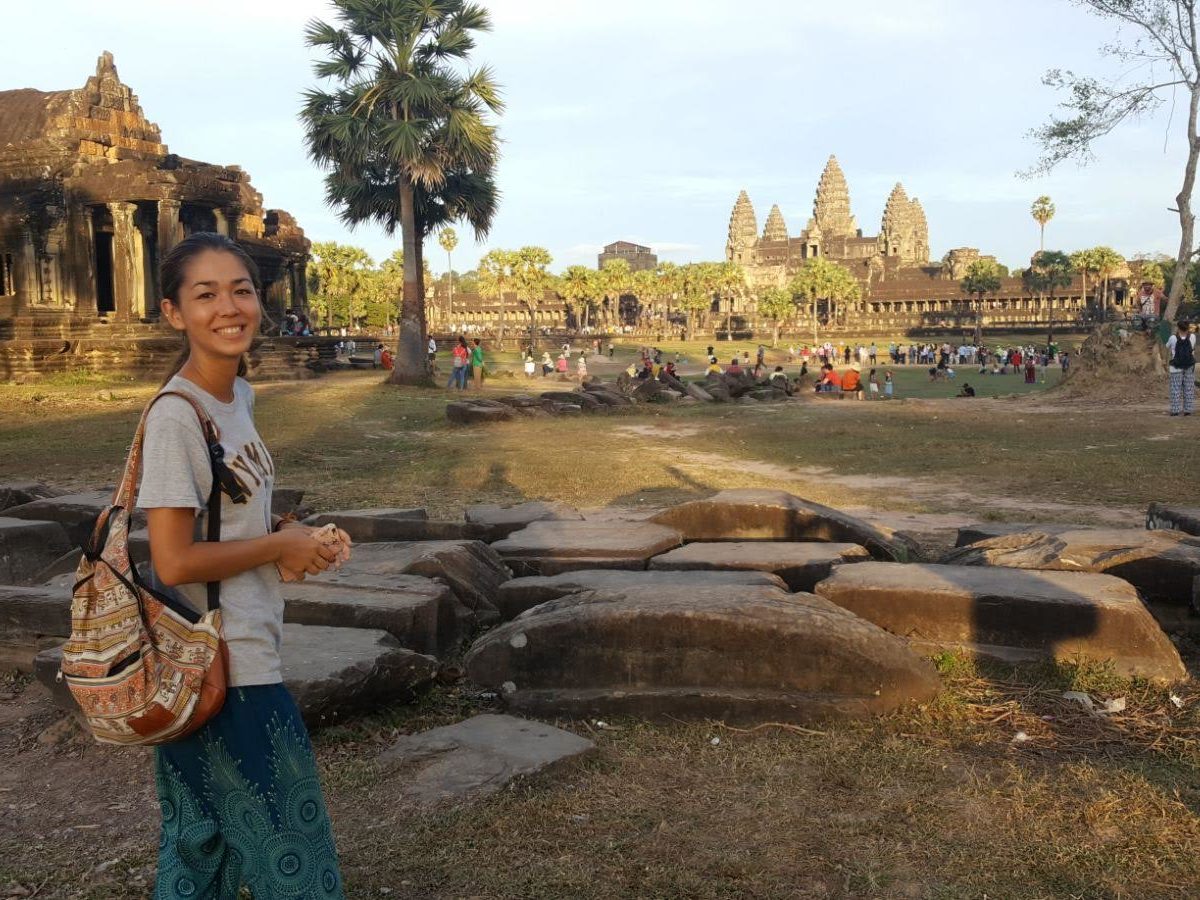
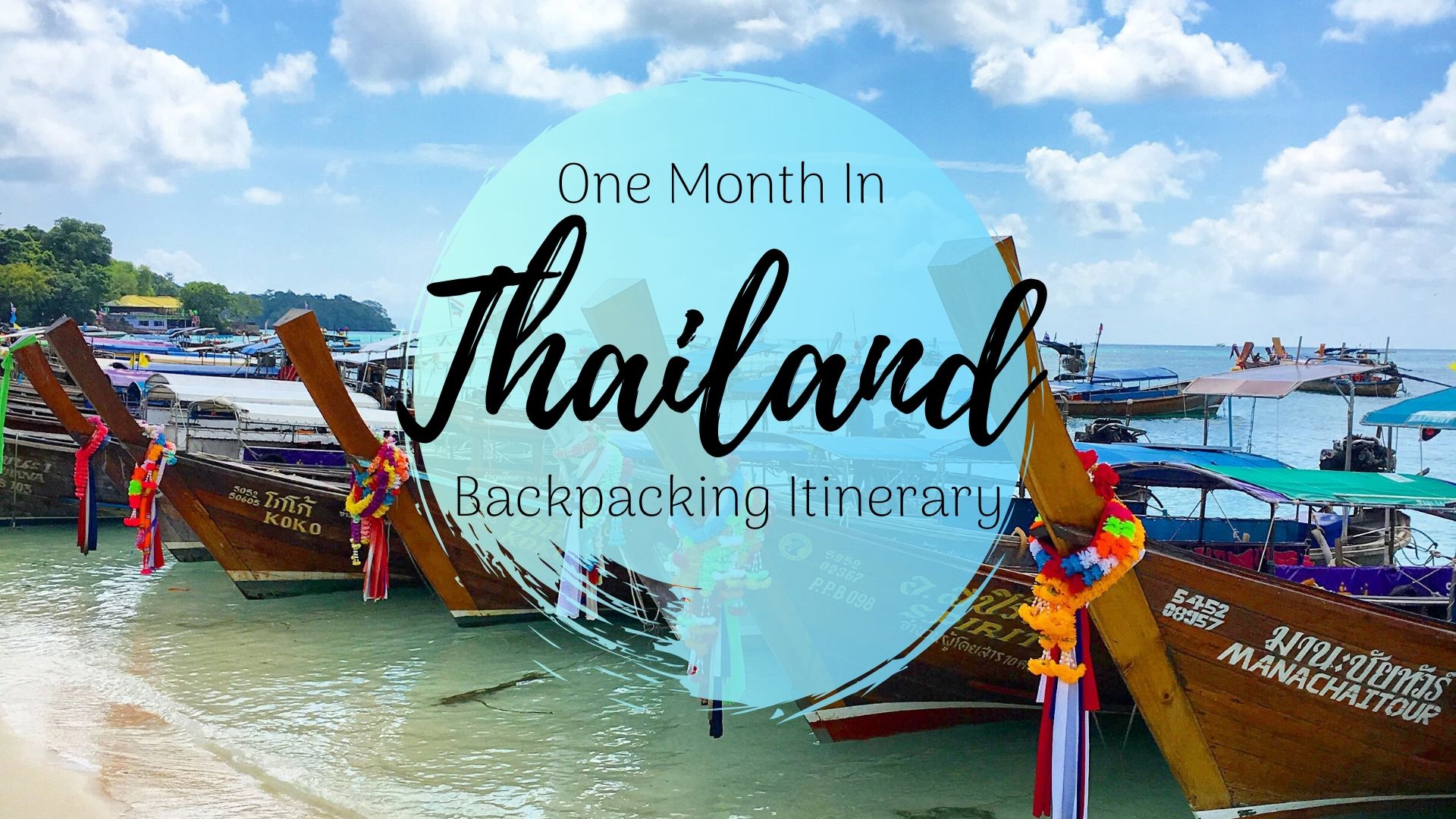
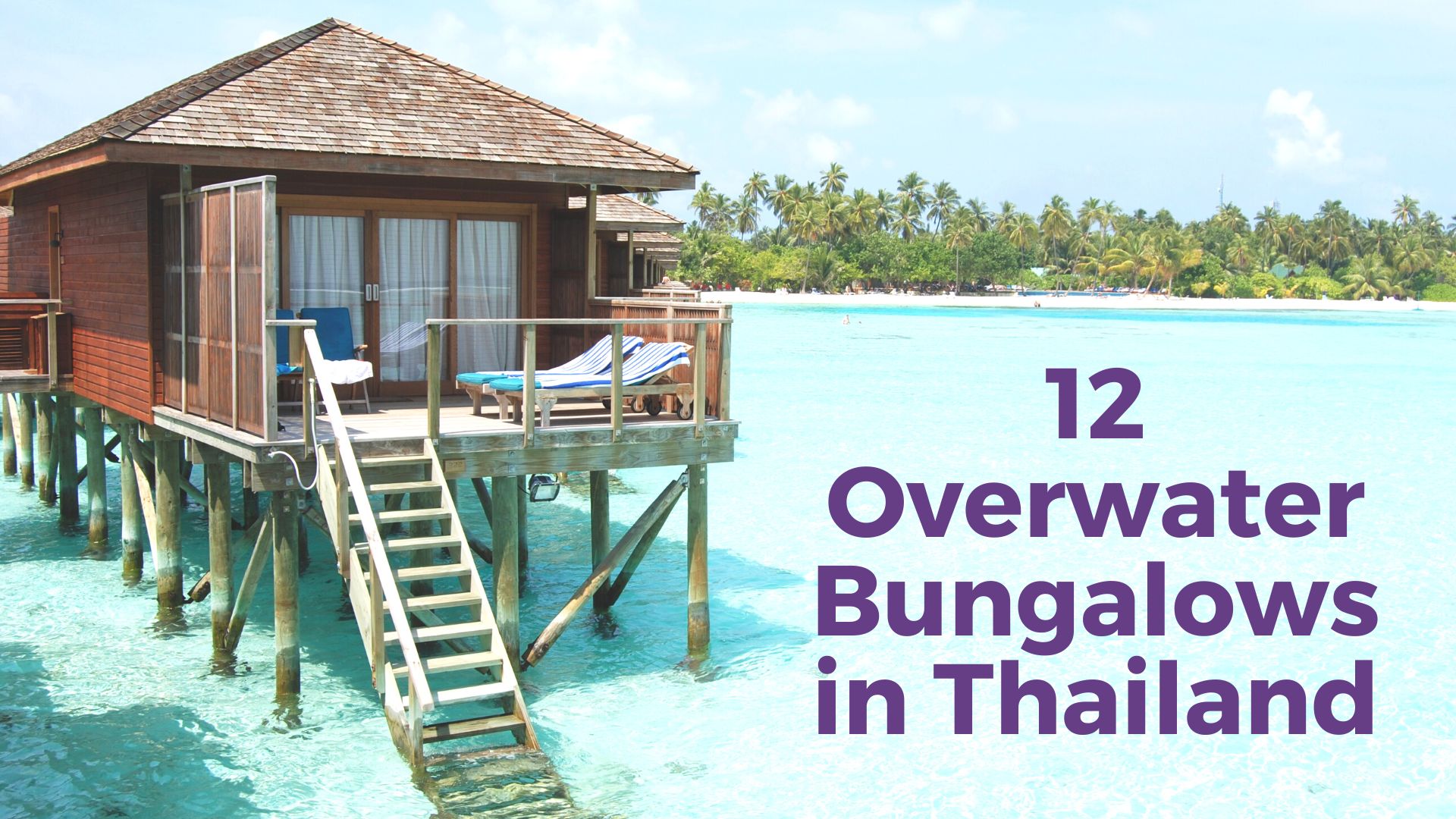

2 thoughts on “Two Weeks Backpacking Cambodia Itinerary”
Thanks for a well-written blog. I noticed you had vegan/vegetarian burgers. Is the country vegetarian-friendly? regards
It wasn’t too challenging to be a vegetarian in Cambodia. I ate a lot of fried noodles and fried rice street food, and asked them to hold off on the meat. I also found vegetarian spring rolls and papaya salad in the Cambodia night market too. If all else fails there are always people selling boiled ears of corn for 50 cents on the street 🙂